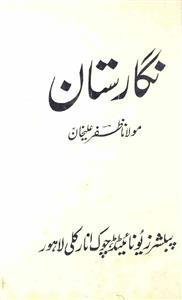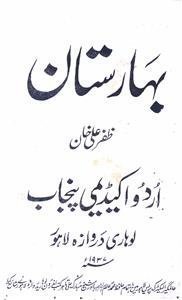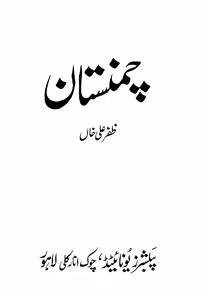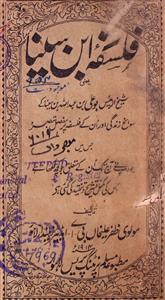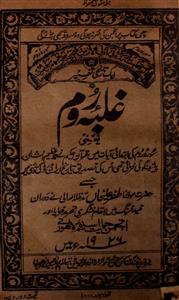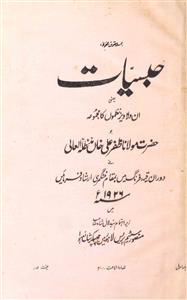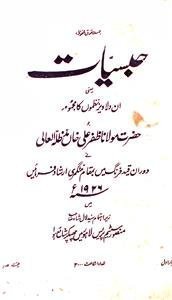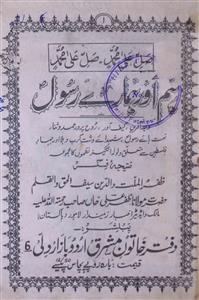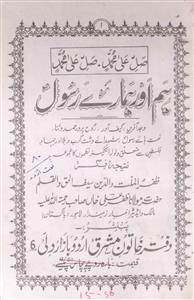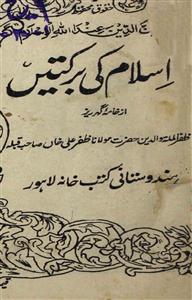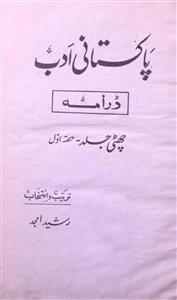 For any query/comment related to this ebook, please contact us at haidar.ali@rekhta.org
For any query/comment related to this ebook, please contact us at haidar.ali@rekhta.org
About The Book
مولانا ظفر علی خاں شاعر اور صحافی تھے اور تحریک پاکستان کے اہم رہنماؤں میں شمار ہوتے تھے۔انہیں بابائے اردو صحافت کہا جاتا ہے۔ ان کی شاعرانہ کاوشیں بہارستان، نگارستان اور چمنستان کی شکل میں چھپ چکی ہیں ۔اس کے علاوہ بھی ان کی متعدد تصانیف منظر عام پر آچکی ہیں۔ آپ کے سامنے اس وقت ان کا مشہور مجموعہ " نگارستان " ہے ۔ اس میں مذہب و عقائد، سیاست و معاشرت اور اصلاحات کی نظمیں ہیں۔ خاص بات یہ ہے کہ نظموں کے استعارے کو سمجھانے کے لئے حاشیہ نمبر دیا ہوا ہے اور اس حاشیے میں پوری بات نثری انداز میں سمجھائی گئی ہے ۔ کئی موقعوں پر یہ حاشیہ طویل یہاں تک کہ ایک صفحے سے نکل کر دوسرے صفحے تک پھیلا ہوا ہے ۔ کہیں پر بھی اشعار کے معنی مرادی کو سمجھانے میں کوتاہی نہیں کی گئی ہے اور جہاں بھی معمولی اغلاق نظر آیا، حاشیہ میں اس کا خلاصہ یا مخصوص واقعہ کی طرف نشاندہی کردی گئی ہے۔ کوئی نظم کسی مخصوص موقع پر کہی گئی ہو تو اسے مکمل تاریخ کے ساتھ لکھ دیا گیا ہے ۔مثلاً مسجد انگور راولپنڈی پہنچتے ہیں اور مسجد کے روحانی منظر کو دیکھ کر ایسا متاثر ہوئے کہ ایک نظم کہہ دی، نظم سے پہلے ایک نثری تعارف ہے جس میں تاریخ ، ماہ اور دیگر تفصیل لکھی ہوئی ہے ، اس کے بعد نظم ہے۔ یہ صورت حال کتاب میں بار بار پیش آئی ہے۔ کتاب کا مطالعہ نظم و نثر دونوں کا مزہ دیتا ہے۔
About The Author
Zafar Ali Khan was a poet, an editor, a political activist, and also a freedom fighter. Born in a small town called Koatmarta in the district of Sialkot in 1873, he received his early education in Karamabad but later joined Anglo Mohammedan College, Aligarh.
Zafar Ali Khan worked as the editor of the then famous daily called Zameendar. This newspaper had made a singular contribution in those days towards creating an acute consciousness regarding political, social, and cultural issues of the times. His political stance with respect to non-violence differed from that of Mahatama Gandhi. Clearly opposed to Gandhis’s policy of non-violence, he believed in direct confrontation with the British. An ardent supporter of Khilafat Movement, he also had to serve a term of five years in prison for his role in the freedom movement.
Poetry was a mode of socio-political resistance for Zafar Ali Khan. He engaged with the issues that impacted his times. Most of what he wrote represents contemporary history in literary terms. He died on November 27, 1956 in Lahore. His collections of poems include Baharistan, Nigaristan, and Chamanistan.
 For any query/comment related to this ebook, please contact us at haidar.ali@rekhta.org
For any query/comment related to this ebook, please contact us at haidar.ali@rekhta.org
